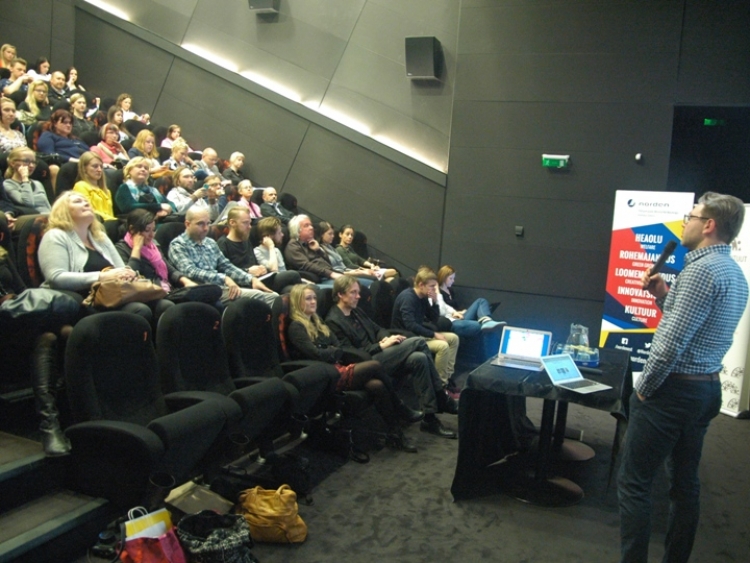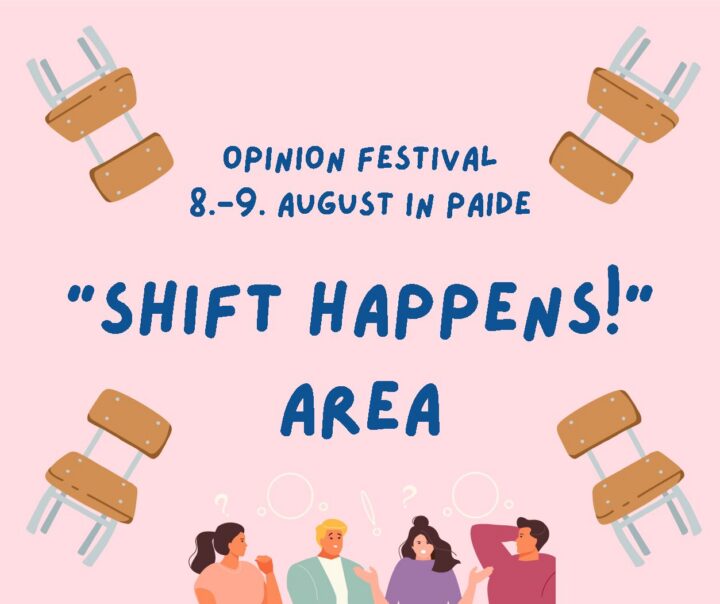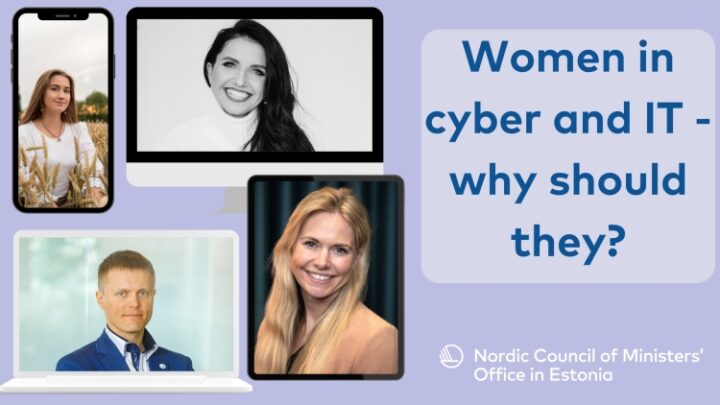Inspiration lunch: The secret to a successful company is its values

The secret to a successful company is its values – both those of its employees and those it offers to its clients. This was the conclusion that was reached at the ‘Business models without borders’ inspiration lunch held in Tallinn on 28 April.
Sharing their experiences at the lunch were Riku Mäkelä from Finland, the CEO of Slush (the biggest event in Europe bringing together investors and start-ups); Martin Kõiva from Estonia, the customer support manager for the sales management software-producing Pipedrive; and Kristian Brøndum from Denmark, the director of the Business Model Research Centre at the University of Aalborg.
‘Slush’ refers to sleet that covers the ground. “We try and find the worst weather possible and then to convince people to come here from their warm climates!” says Riku Mäkelä. “And they do come, but not for the weather obviously – for the content. The money Slush makes is invested in the next event. We’re a non-profit organisation, and the majority of our work is done by volunteers.”
The number of people being cared for in the world is growing compared to the number of people who are in work. Slush was inspired by a desire to come up with opportunities for growth in a world where this is the reality. “At the time, when we asked students from one university in Finland who’d be prepared to and interested in starting up their own business, out of the 600 we asked only three raised their hands,” Mäkelä recalls of the situation in 2008 when Slush was launched. In order to promote enterprise, the first thing that had to be done was to raise awareness of it, to hone people’s skills and to give them access to funding.
280 million euros
The first Slush, which was held in 2008, was a cosy affair designed to resolve problems related to raising risk capital. Barely a couple of hundred people turned up, but they turned out to be the right people. “At one point we suddenly realised that risk capitalists were actually doing business at our little event,” Mäkelä says. “After that we started inviting investors along as well.”
A couple of years ago Slush generated turnover of 280 million euros. “We never thought we’d be seeing that much money coming in and out,” says the CEO with a smile. “That’s part of inspiration. Nine out of ten companies fail. There are people who come to Slush every year with new ideas. Not that it’s the idea that’s most important, but the team behind it. If your team’s good, they’ll see the weaknesses in their idea. It doesn’t work the other way round.”
Most of the companies that have taken part in Slush have been from Estonia, Finland and Sweden, but success has seen the event grow, and its organisers want to offer those who have come from more far-flung corners of the world other entertainment.
In 2015 Slush entered the Asian market, arranging the biggest start-up event ever seen in Japan – Slush Asia. “That said, everything’s connected,” Mäkelä remarks. “Asian events feed events in this region [the Nordic/Baltic region – Ed.] and attract investors, who bring money into our part of the world.”
The Slush CEO is particularly proud of the fact that despite the tiny population in the Nordic countries and Baltic States, one in every ten million-dollar sales of start-ups takes place right here in this region. The trend in Estonia and Finland is to start a second or third company following the successful sale of the first.
Shared values keep people together
Martin Kõiva says that Pipedrive is coming along in leaps and bounds. The company currently employs 60 people in Tallinn and 15 in Silicon Valley. Its team is a truly international and multicultural one, so shared values hold a very important place in keeping everyone together. “In big companies values are often little more than the outcome of a management meeting, but for us they’re something that everyone’s accepted and that have helped us grow as quickly as we have,” he explains.
“There are people who’ve left,” he adds. “When you’re hiring, be as tough as you can get away with being – because mistakes can be fixed, but with great difficulty. We hold at least five interviews with candidates, including a full team interview and a test task they have to carry out. That way it’s not just one person thinking the new guy’s great, but everyone tells you what they think. And if it’s not a “hell yes!” from everyone, it’s pretty much a ‘no’. If someone on the team is against hiring the person in question, we don’t hire them.”
Pipedrive hires people on the basis of six core values, as explained by Kõiva:
- Personal motivation – it has to be fun. In other words, we don’t hire people who have to be pushed all the time to do their job.
- Thinking big – connected to the previous point. You may be motivated, but you’ve also got to be ambitious.
- We try to avoid hiring anyone who’s too manipulative or ‘political’.
- Ideas count, not the people who come up with them. This means competitiveness is undermined and more gets done.
- Ability to learn.
- There’s no excuse for not doing something.
From idea to business model in five months
Kristian Brøndum also talked about the importance of values. “A lot of different business models are being discussed in academic circles at the moment, and everyone wants to present their own,” he says. “But it always comes back to what the first speaker was talking about – values being most important – creating value, giving value to clients, and that it pays to hold on to certain values for yourself.”
The University of Aalborg is home to the New Venture Creation Programme, in which students go from idea to business model in five months. “Virtually every start-up has its own business model, and new ones are coming along all the time,” Brøndum explains. “Right now we’re watching old business models die out.” Newcomers like Napster, Spotify and Uber don’t define themselves as market participants: they do something completely different.
Brøndum gave the example of the business model of the e-book ordering site Mofibo – the more books that clients read, the more Mofibo gets paid. A low fee to clients, but much-needed to publishers – statistics amass on the kind of books customers want to read. Mofibo entered a niche market in Denmark and Sweden; the Netherlands and the United Kingdom are to come later. They are doing this in partnership with a local publisher. “We’re moving from infrastructure to infostructure,” he says.
New business models rely on interesting stories being told. If you can get people talking about themselves, they are prepared to do work for you. Skype laid not a single cable; Uber has no cars; Facebook, the biggest media company in the world, creates no content of its own; accommodation service provider Airbnb has no hotels. “Make sure you test your business and look at what kind of preconditions there are for it,” Brøndum advises.
The 2015 inspiration lunches were organised by the Finnish Institute in Estonia, Creative Estonia and the Nordic Council of Ministers’ Office in Estonia. The seminar series was launched in 2013. The overview of the third lunch in this year’s series was prepared by Creative Estonia.


